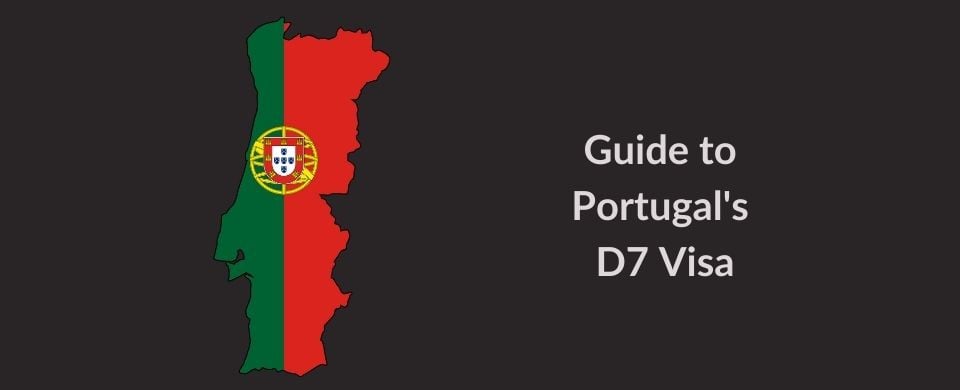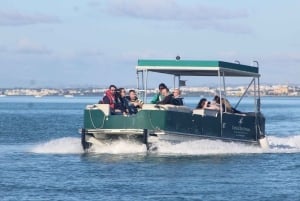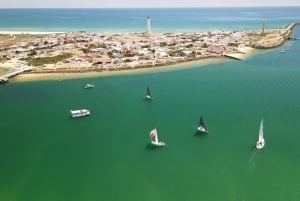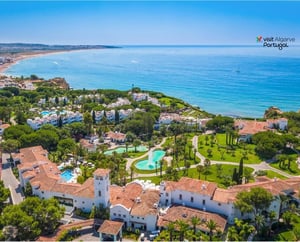How to apply for a D7 Visa for Portugal
Book Top Experiences and Tours in Algarve:
If youʻre booking your trip to Algarve last minute, we have you covered. Below are some of the top tours and experiences!- Albufeira: Full-Day Buggy Tour with Lunch
- Faro: Ria Formosa Natural Park Segway Tour & Birdwatching
- From Faro: 4 Stops, 3 Islands in Ria Formosa Catamaran Tour
- Porches: Algarve Vineyard Tour and Wine Tasting Experience
- Albufeira: MiniGolf Adventure Park Entry Ticket
Residency in the EU brings significant advantages, not least the freedom of movement within the Schengen Space. For non-EU nationals seeking residency in the EU, Portugal offers some attractive options. The Golden Visa – a residency by investment programme, has seen great success. However, less well known, but arguably more attractive, is the D7 visa. Faster to process, and with no property investment required, it is an excellent option for retirees or entrepreneurs seeking residency in Portugal. Since Brexit, that now includes UK citizens too.
In the article below we explain the requirements for applying for and obtaining a D7 Visa.
What is the D7 Visa
Also known as Portugal’s Passive Income visa, the D7 visa allows non-EU citizens to obtain residency based on having proof of regular foreign income (eg. Pensions) rather than being based on property investment.
The initial D7 visa is granted for 1 year. This can be renewed for two successive periods of 2 years and can be converted into permanent residency after 5 years, at which stage you may also apply for Portuguese nationality.
What are the benefits and advantages of a D7 visa
- Processing D7 visas is a relatively rapid process.
- Holding a D7 visa does not preclude you from having a professional occupation in Portugal
- You can apply for NHR – Non-habitual Resident status which has significant tax incentives
- As a resident in Portugal, you can access the Schengen Space
- Entire families are eligible under the family reunification regulations
- Access to the Portuguese healthcare and education systems
D7 Visa requirements
- Be a non-EU national
- Have proof of sufficient funds. Currently, per year you must have income or pensions amounting to €7.200 for the first adult; €3.600 for second or more adults; €2.160 per child.
- Six months of bank statements.
- Hold a clean criminal record issued by your home country or the country where you have resided for more than 1 year.
- Proof of accommodation / place of residence – eg. a property rental contract or proof of ownership of a property.
- Proof of health insurance coverage.
- Proof of travel insurance
The D7 visa Process
Overview – a temporary D7 Visa valid for 4 months is issued in your home country to enable you to enter Portugal. This is followed up by the issuing of your D7 residency permit by the Portuguese authorities when you are already in Portugal.
- Apply for a temporary D7 visa from the Portuguese embassy or consulate in your home country, fulfilling the requirements mentioned above.
- You will need your passport, passport photos and a declaration outlining your reasons for seeking residency in Portugal.
- At this stage, it is wise to open a Portuguese bank account and apply for a NIF (Portuguese tax number). While requirements can vary across consulates, most require proof of NIF and some require some funds to be deposited in a Portuguese bank account.
- When the temporary D7 visa is issued, you can enter Portugal. You then must schedule an appointment with SEF (Serviço de Estrangeiros e Fronteiras) to complete the process and add your biometric information, so that the D7 visa can be issued. Once it is issued, you are considered a Portuguese resident.
D7 Minimum Stay Requirements
The holder of a D7 visa is expected to be, at least, 16 months in the country during the first 2-year period, and 28 months in each 3-year subsequent period provided no absence exceeds 6 consecutive months. For the holder of a permanent residence permit, this is increased to a minimum of 30 months during each 5-year period, provided no absence exceeds 24 consecutive months. Absence periods may be exceeded for duly proven professional or force majeure reasons.
This article is intended to give some information on the D7 visa and the application process but does not replace consultation with the official entities, bureaucratic and or legal advice.












































